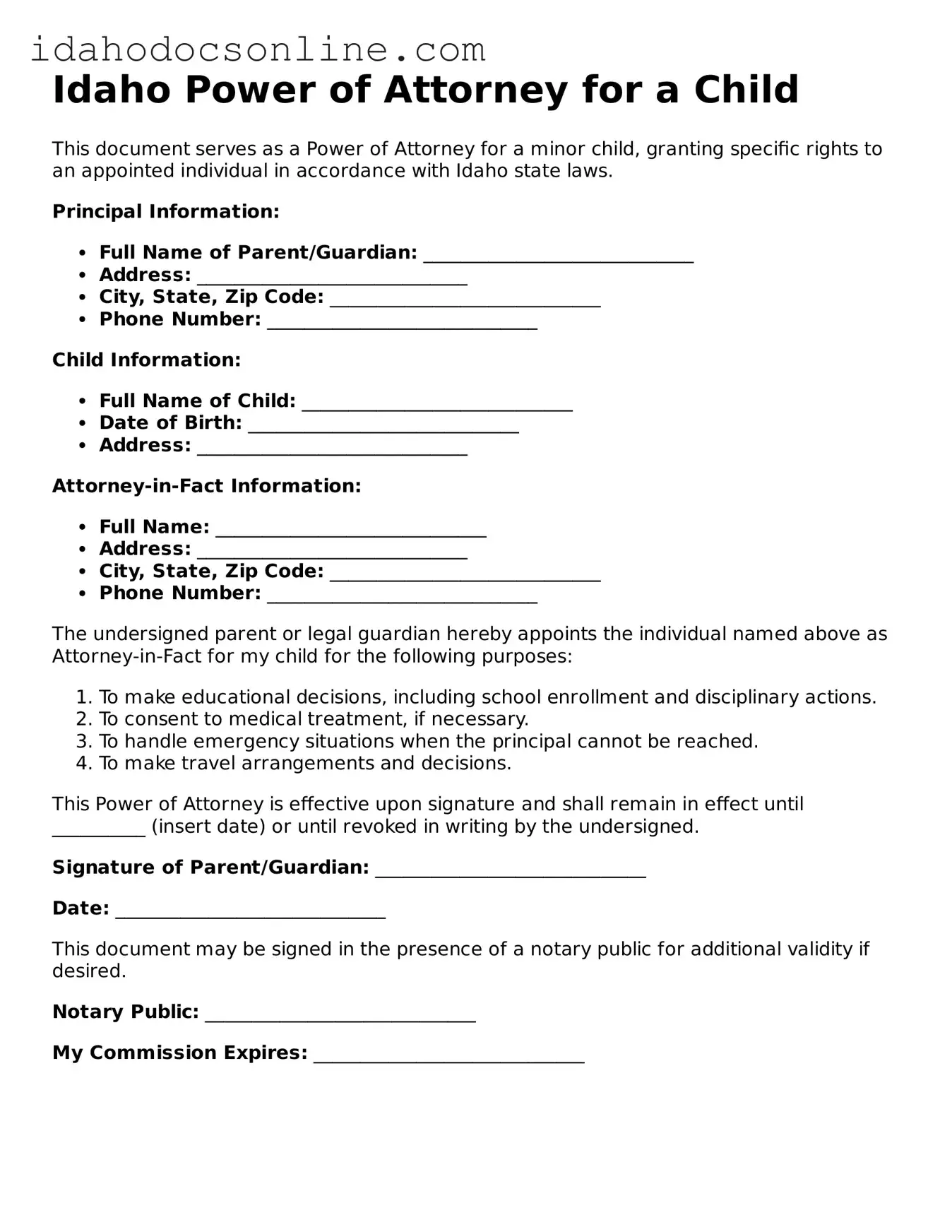Free Power of Attorney for a Child Form for Idaho
The Idaho Power of Attorney for a Child form allows a parent or legal guardian to designate another adult to make decisions on behalf of their child, particularly in situations where the parent cannot be present. This legal document ensures that a trusted individual can take care of the child's needs, whether for a short trip or an extended period. Understanding how to properly fill out this form is essential for anyone looking to secure the well-being of their child when they are unavailable.
Ready to fill out the form? Click the button below!
Fill Out Your Document

Free Power of Attorney for a Child Form for Idaho
Fill Out Your Document
Need speed? Complete the form now
Complete Power of Attorney for a Child online — edit, save, download with ease.
Fill Out Your Document
or
Free PDF
